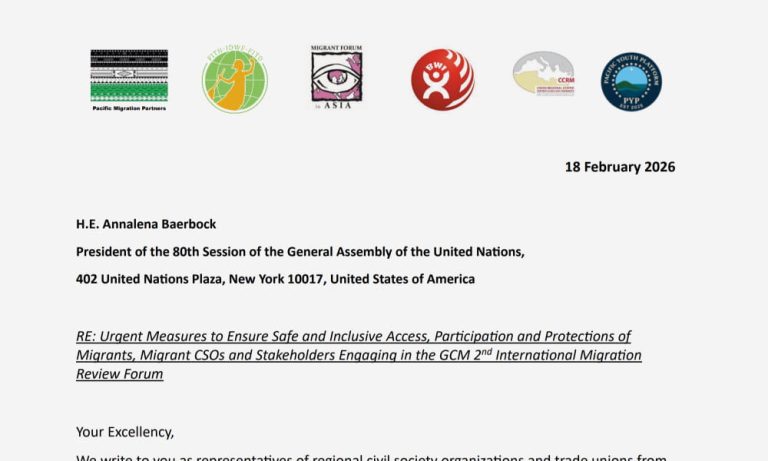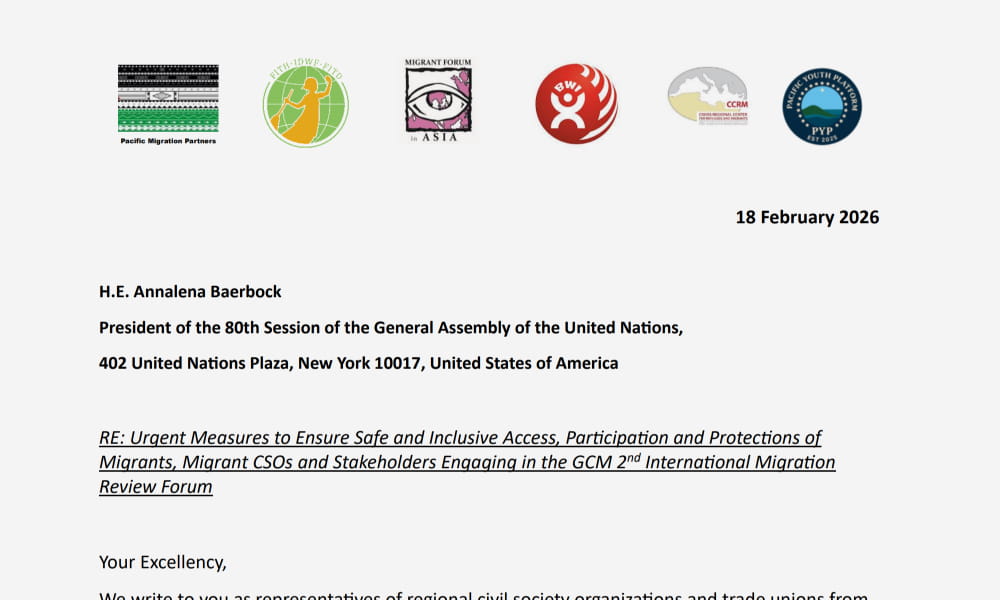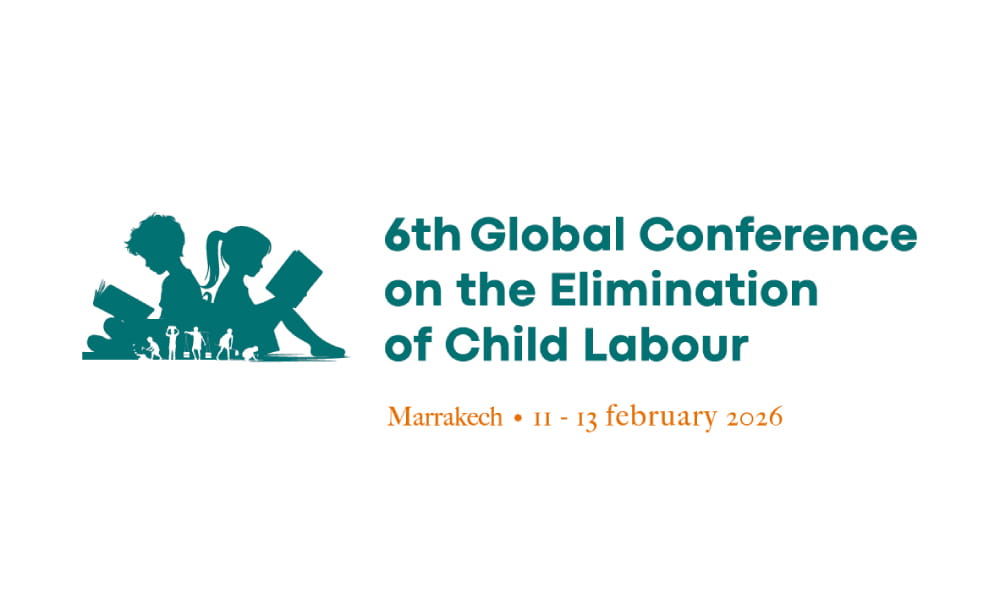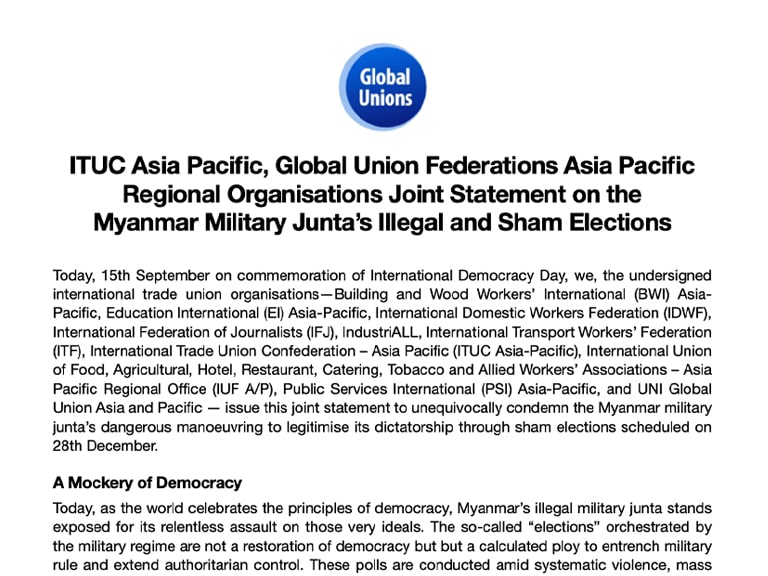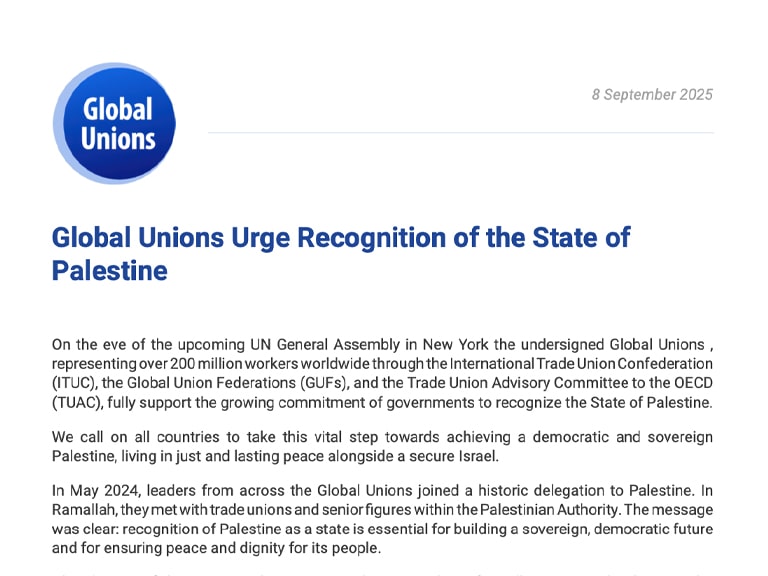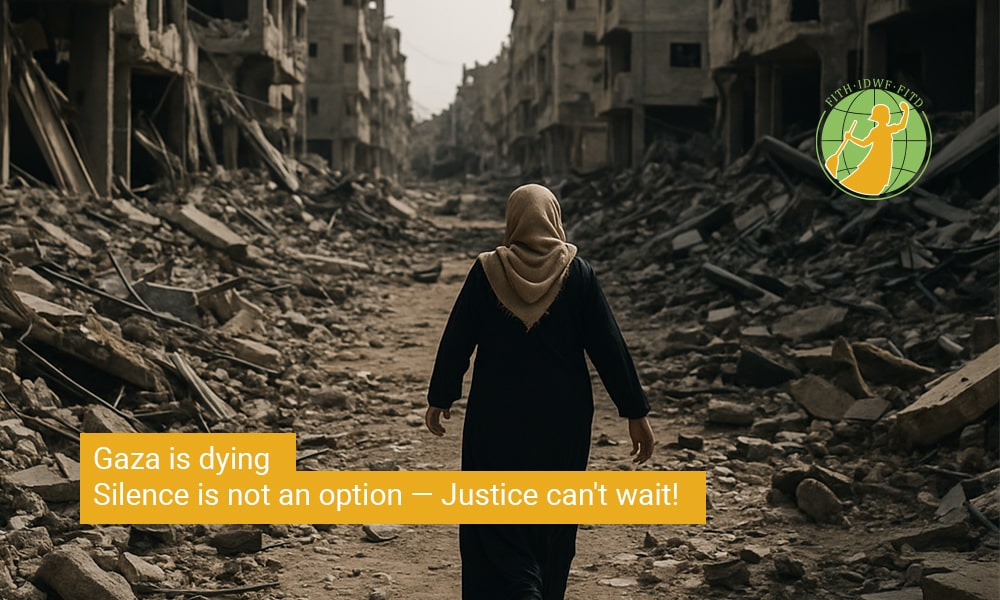
There is no denying it: Gaza is dying.
The International Domestic Workers Federation joins to public outcry for justice and compliance with international law to put an end to this human-made tragedy of our times.
More 50,000 people have been killed since the assault began in October 2023, with nearly one-third of the dead being children under 18. This makes it the deadliest conflict of the 21st century for civilians, particularly children. Entire neighborhoods, schools, hospitals, and places of worship have been reduced to rubble. More than 1.7 million people have been displaced—over 75% of the population of Gaza—creating a manufactured famine and public health catastrophe.
Among the most impacted by war and occupation are women workers—particularly domestic workers, caregivers, and those in the informal economy. These workers, often already operating without legal protections, face intensified vulnerability under conditions of displacement, bombardment, and economic collapse. In Gaza, many women serve as the sole providers for their families and communities, performing both paid and unpaid labor essential for survival. Yet under siege, their work becomes both more dangerous and more invisible.
Health workers—most of them women—have been killed while caring for patients in bombed hospitals. Pregnant women give birth without anesthesia. Domestic workers lose homes and employment simultaneously, with no recourse for recovery. Occupation does not only destroy homes and infrastructure—it dismantles the social fabric and labor rights from which workers, especially women, derive safety and dignity. Labor justice must include these workers, whose struggles are often unseen but whose suffering and resilience define this crisis.
We all have asked ourselves what we would have done had we lived during the great crimes against humanity in recent history—whether during the Rwandan Genocide, the horrors of South African Apartheid, or the Nazi Holocaust. These moments tested the conscience of the world. Today, we face a similar test. Whatever we believe we would have done then—spoken out, refused complicity, organized for justice—we are doing now. This is our moment of moral clarity, and we cannot look away.
Labor unions have always stood on the frontlines of justice. From factory floors to international movements, we have historically recognized that workers’ rights cannot be separated from the broader fight for human dignity. It is our moral imperative, as workers organized in solidarity, to act now in the face of atrocity.
Throughout history, labor movements have resisted war, occupation, and genocide. During World War II, French trade unions such as the CGT actively resisted the Nazi occupation, organizing underground networks, strikes, and acts of sabotage. In Italy, workers in Milan and Turin shut down industrial production under German control in 1943 and 1944, disrupting fascist operations. In Nazi-occupied Poland, labor activists and underground trade unions formed a crucial part of the broader resistance against fascism and genocide. In South Africa, unions like COSATU played a pivotal role in resisting apartheid and conscription, connecting racial justice with labor rights. During the Vietnam War, American labor activists formed “Labor for Peace” caucuses, demanding an end to U.S. militarism abroad and re-investment in working-class communities. More recently, the Iraqi Oil Workers Union resisted the privatization of national resources under U.S. occupation, asserting labor’s voice against foreign domination.
These are not isolated cases; they form a long and proud tradition of labor organizing against violence and injustice.
And as we witness a genocide unfolding today, international human rights organizations, including Amnesty International, have concluded that many of these acts constitute war crimes and violations of international law. Amnesty has explicitly concluded that the war on Gaza constitutes genocide, citing the indiscriminate targeting of civilians, the destruction of infrastructure, and the dehumanizing rhetoric used to justify the oppression of Palestinians.
The International Domestic Workers Federation cannot but continue the longue history of labor movements’ fight for justice and cannot remain silent. Injustice anywhere is a threat to justice everywhere—and war anywhere is a threat to workers everywhere.
We therefore join the growing global coalition of unions, workers, and civil society organizations demanding:
- An immediate and permanent ceasefire in Gaza and all Palestinian territories.
- The unrestricted entry of humanitarian aid, medical supplies, food, and water.
- An end to the blockade and occupation that have made normal life in Gaza impossible.
- The protection of all civilians under international law.
Our movement is built on the power of solidarity. We urge all unions, workers, and people of conscience to speak out, organize, and act. Let it not be said of us that we stood by in silence.
In our generation’s moment of reckon, let us stand where labor has always stood—on the side of justice.
In solidarity,
The International Domestic Workers Federation (IDWF)
05/29/2025

